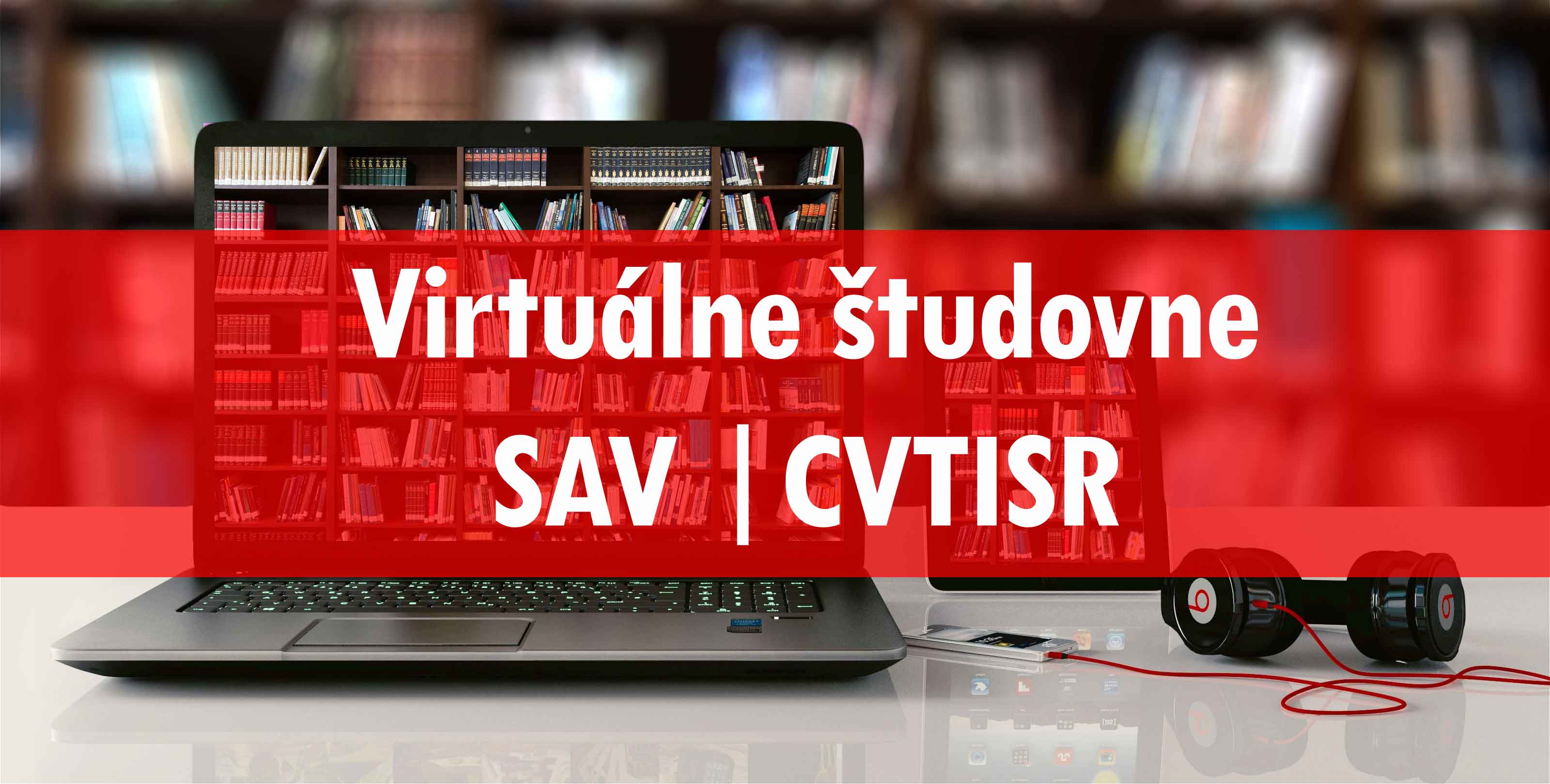| VEDECKÝ ČASOPIS O DEJINÁCH SLOVENSKA A
STREDNEJ EURÓPY
VYDÁVA HISTORICKÝ ÚSTAV SLOVENSKEJ AKADÉMIE VIED, V. V. I. ISSN 0018-2575 (print) ISSN 2585-9099 (online) EV 3084/09 Všetky obsahy sú čitateľom voľne dostupné podľa licencie Creative Commons CC BY 4.0. Indexovanie a abstraktovanie: Web of Science Core Collection: Arts & Humanities Citation Index Additional Web of Science Indexes: Current Contents Arts & Humanities Scopus CEEOL CEJSH EBSCO Historical Abstracts ESF (HUM) ERIH plus |
AKTUÁLNE ČÍSLO | REDAKCIA | POKYNY PRE AUTOROV | ARCHÍV | PREDPLATNÉ | O ČASOPISE | PUBLIKAČNÁ ETIKA | VÝZVY
Historický časopis, 58, 4/2010
O B S A H Teória a metodológia Jančovič, Ivan: K problematike narativity a referencie v historiografii a v umeleckej literatúre ... 621 Š t ú d i e Hanula, Matej:Slovenskí agrárnici medzi
zlučovacím zjazdom a parlamentnými voľbami v roku 1925 ... 633 Rozhľady Čarnogurská, Marina: Päťdesiat rokov slovenskej sinológie ... 699 Diskusia Zemko, Milan: Ad: Dušan Kováč, Problém písania
mien historických osobností z obdobia uhorských dejín ... 725 R e c e n z i e Kapitoly zo súčasnej filozofie dejín (Juraj
Dvorský) ... 747 Glosy ... 755 Kronika ... 761 Obhájené práce ... 766 Slovenská historiografia 2008 (Alžbeta Sedliaková) ... 769 C O N T E N T S Methodology Jančovič, Ivan: On the issue of narrativity and reference in historiography and fiction ... 621 A r t i c l e s Hanula, Matej: The Slovak agrarians between the
merging conference and the parliamentary elections of 1925 ... 633 Horizons Čarnogurská, Marina: Fifty years of Slovak Sinology ... 699 Discussion Zemko, Milan: Comment: Dušan Kováč: The problem
of writing the names of historic personalities from the time of the Kingdom of
Hungary ... 725 Slovak Historiography in 2008 (Alžbeta Sedliaková) ... 769 R E V I E W – A N N O T A T I O N S – B I B L I O G R A P H Y – C H R O N I C L E I N H A L T Methodologie Jančovič, Ivan: Zur Problematik der Narrativität und Referenz in der Geschichtsschreibung und Literatur ... 621 S t u d i e n Hanula, Matej: Slowakische Agrarier in der Zeit
zwischen dem Vereinigungskongress und den Parlamentswahlen 1925 ... 633 Rundschau Čarnogurská, Marina: Fünfzig Jahre slowakischer Sinologie ... 699 Diskussion Zemko, Milan: Ad: Dušan Kováč, Probleme bei der
Namensschreibung ... 725 Slowakische Historiographie 2008 (Alžbeta Sedliaková) ... 769 KRITIK – GLOSSEN – BIBLIOGRAPHIE – CHRONIK FUNDÁRKOVÁ, Anna. The importance of education and study tours in the Pálffy family in the 16th-17th centuries. Historický časopis, 2010, 58, 3, pp. 393-413, Bratislava. The aim of the study is to present the aims, content, course and results of foreign study tours by aristocrats from the Kingdom of Hungary in the early modern period, specifically in the case of the representatives of the Pálffy family. The parents of young aristocrats expended considerable financial resources so that their offspring could be educated in the best schools at home, and could later go on tours of foreign countries. The most popular destinations for Hungarian noblemen were usually Germany and Italy. Only the richest could afford a Grand Tour according to foreign examples, involving travel through various countries and education at so-called knight’s academies. Young men aiming at a church career studied theology at leading theology faculties, among which the most famous and prestigious was the Collegium Germanicum et Hungaricum in Rome. Aristocracy of Hungary in the 16th-17th centuries. Upbringing and education of noblemen. Foreign study tours. Kavalierstour and Grand Tour – the “travelling court” of the aristocrat. Paternal instruction. Financing of travel. Knight’s academies. JANČOVIČ, Ivan. On the issue of narrativity and reference in historiography and fiction. Historický časopis, 2010, 58, 4, pp. 621-632, Bratislava. The author of the study pays attention to narrativity – which has been considered very crucial in recent decades in creating presentation of past events. Narration is a basic act in works of historians as well as prose writers. The author deals with some common aspects of narration in texts by historians and fiction writers. Historical text and fictional text are created by structural building of narration, where selection and hierarchization of facts is made, selected narration elements are put in a compact interpretation giving particular events sense and meaning. A certain aim of an author of narration cannot be excluded and procedures in the building of narrative structure are similar in both cases, but specific procedures, aimed at results not acceptable in a scientific text, are applied in fictional text. Next the author examines the main differences resulting from different characters of reference of both text fields and from their different position in a net of social discourses. The crucial difference originates in the ontological nature of facts included in a historian’s narration compared to the “facts” given by fiction. This is connected to differences in the references of the two types of text. The next differentiation aspect is represented by the aims followed in creating historical and fictional narration. These aims are influenced by our cultural frame. The texts of a historian and a fiction writer are produced and perceived in diverse „receptive regimes“; the two kinds of text enter different levels of expectation and fulfil diverse functions. Narration. Text of a historian. Non-fiction. Fact. Reference. HANULA, Matej. The Slovak agrarians between the merging conference and the parliamentary elections of 1925. Historický časopis, 2010, 58, 4, pp. 633-658, Bratislava. As with all parties in a parliamentary democracy, the activity of the agrarian party in inter-war Slovakia was directed towards gaining the largest possible share of state power. Its effort was also motivated by the fact that two-thirds of the population of Slovakia worked in agriculture, so a party defending their interests had the possibility to become the strongest in the country. However, the agrarian party, which originated in Slovakia in 1919 under the name National Republican Party of Small Farmers (Národná republikánska strana roľnícka), did not achieve this aim in the 1920 elections. The Social Democrats won the election in Slovakia. The socialist parties did not repeat their success from 1920 in later parliamentary elections in Slovakia. The agrarians again entered the competition to gain the position of the strongest party in Slovakia. After 1922 they were helped by alliance with Czech partners in an agrarian party for the whole of Czechoslovakia. After that year the agrarians in Slovakia built up their organizational structure and started intensive agitation, largely connected with the land reform then occurring. However, in spite of this, the county elections in 1923 indicated and the parliamentary elections of 1925 definitively confirmed that Hlinka’s Slovak People’s Party had become the strongest party in Slovakia. In contrast to the centralist oriented agrarians, it supported the autonomy of Slovakia. First Czechoslovak Republic. Slovakia. History. Elections. Political parties. TKÁČ, Ján. Croatia in the politics of the Slovak Republic, 1941-1945. Historický časopis, 2010, 58, 4, pp. 659-683, Bratislava. The relationship of the Slovak Republic to the Independent State of Croatia in the period 1941-1945 and their position as satellites of the German Third Reich was different from the internal political point of view. The Slovak Republic originated before the outbreak of the Second World War and was not seriously affected by military operations until 1944. By the standards of the time there was an economic boom. In the territory of the Independent State of Croatia, there were partisan and military operations from 1941, and the economy declined. The aim of the representatives of the Slovak Republic was to gain Croatia as a replacement for Yugoslavia in a sort of revived Little Entente of Slovakia, Rumania and Croatia, directed against Hungary. The two countries established political, economic, cultural and sporting cooperation, which culminated in 1942 but then declined. Slovak Republic 1939-1941, foreign policy of the Slovak Republic, Slovak – Croatian relations. Independent State of Croatia (NDH). Ustaše. Second World War. PEŠEK, Jan. The intervention of the regime in the Freedom Party in 1956, the case of Vincent Pokojný and his associates. Historický časopis, 2010, 58, 4, pp. 685-698, Bratislava. The Freedom Party (Strana slobody) was one of the two satellite parties, which existed in Slovakia after 1948. It had no political influence and was forced to operate as a “party of activists” with a minimal membership base. Part of its leadership, headed by its chairman Vincent Pokojný, a member of the National Assembly, strove to activate the party and widen its membership base in the mid fifties. Another part of the leadership, represented by the general secretary František Štefánik, disagreed with this and denounced Pokojný and his associates to the leader-ship of the Communist Party of Slovakia, especially Karol Bacílek and Pavol David. At the of 1955 Štefánik gave them some programme documents formulating the approach of the Freedom Party in the event of the collapse of the communist regime in Czechoslovakia. At the beginning of 1956, Pokojný was forced to give up his seat in the National Assembly. The State Security Service detained him and accused him of preparing a counter revolution and the restoration of capitalism in Czechoslovakia. In July 1956, the members of Pokojný’s group were convicted in a show trial and given long prison sentences. The longest – 11 years – was given to Pokojný himself. The sentences were reduced after an appeal in September 1956, but remained unjustifiably harsh and unjust. This was also a “warning” to the other satellite political parties not to attempt any activation. Slovakia. Communist regime. Strana slobody – Freedom party. Ministry of the Interior. Repression in 1955-1956. ČARNOGURSKÁ, Marina. Fifty years of Slovak Sinology. Historický časopis, 2010, 58, pp. 699-724, Bratislava. In spite of the fact that the scientific study of the achievements of the historical development of China over more than 5000 years of the development of a culture entirely different from that of the West, began only 50 years ago in Slovakia, it has achieved various very original results, thanks to which some of its representatives are regarded as leading personalities in world Sinology, and it can be considered the most important Orientalist discipline in Slovakia. This study endeavours to map in detail everything noteworthy that arose in the course of half a century of Slovak Sinology, and the achievements of its representatives, not only at home, but also abroad and especially in China. Sinology. Modern Chinese literature. History of China. Classical Chinese philosophy. Confucianism. Taoism. Buddhism.
Do Vašej pozornosti ďalej
odporúčame: |



